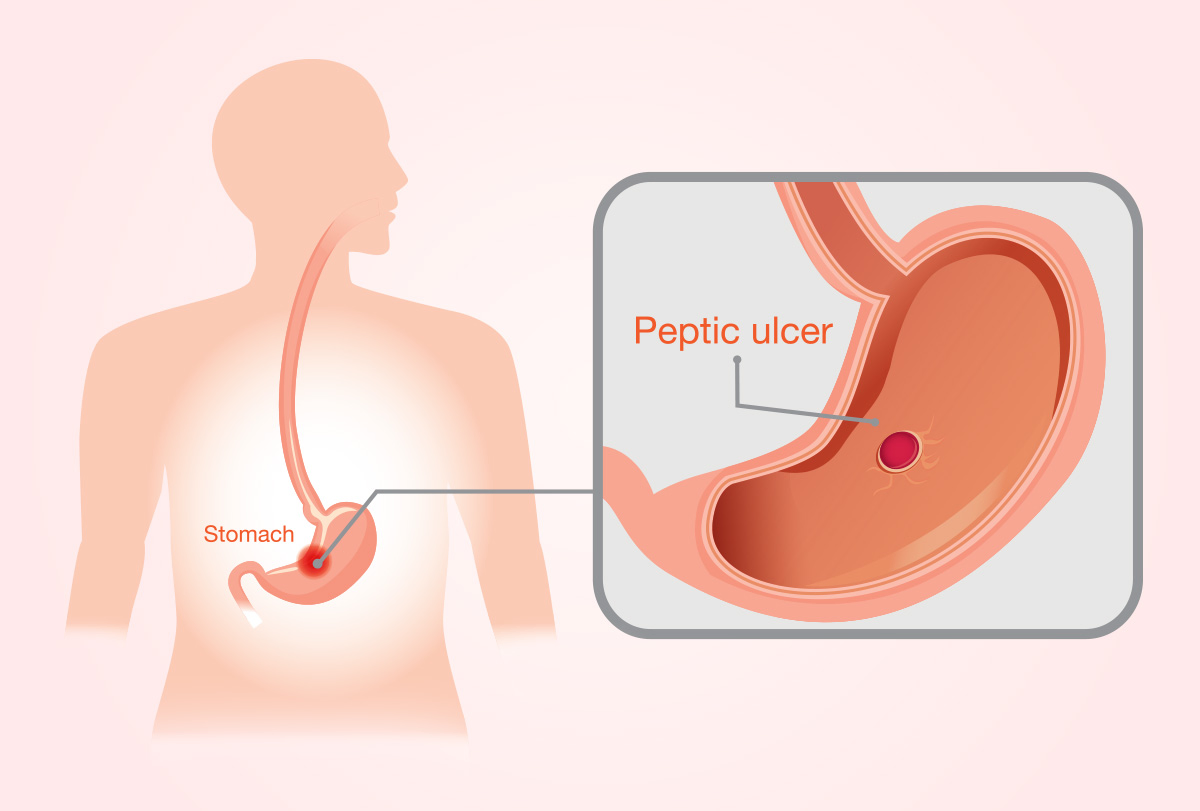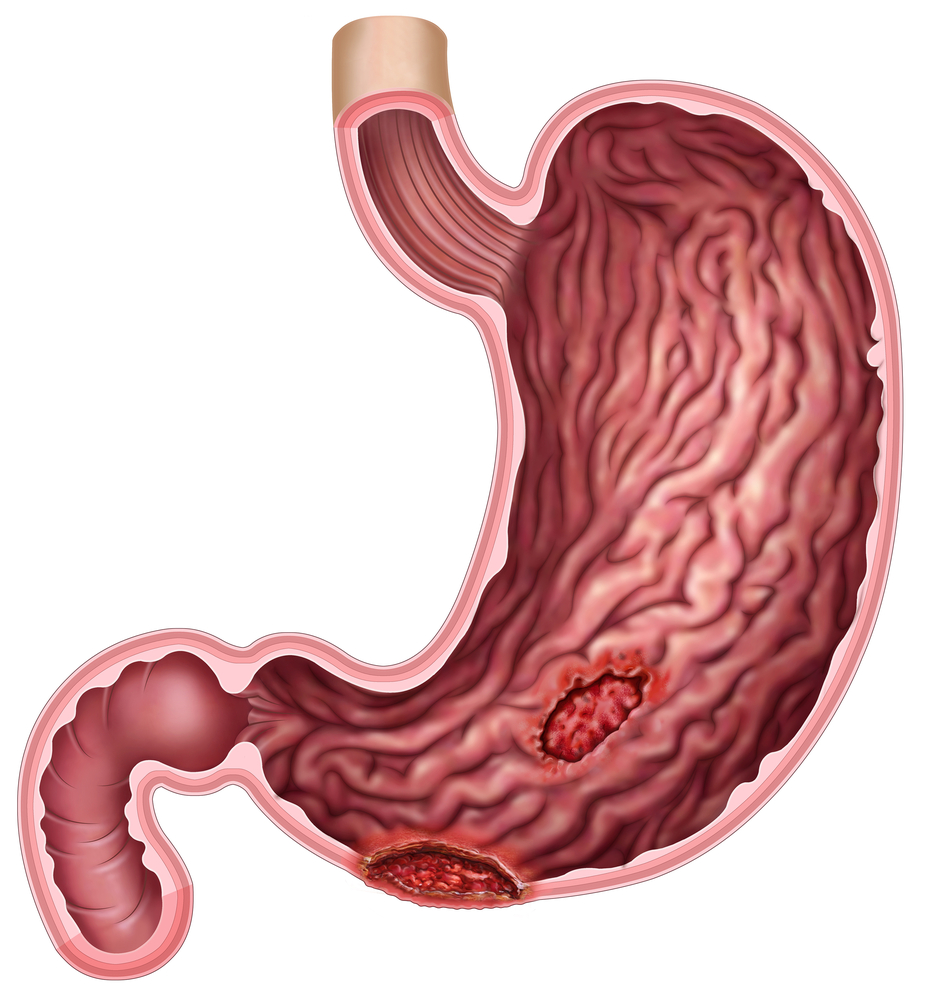CONDITIONS
Stomach Doctor in Dubai

Stomach ulcers (gastric ulcers) and duodenal ulcers are also called peptic ulcers. These are ulcers (or open sores) that may develop on the inside lining of the stomach or the upper part of the small intestine (duodenum) if it is damaged. Stomach ulcers and duodenal ulcers can cause upper abdominal pain and may bleed.

What are the symptoms of stomach ulcers and duodenal ulcers?
Although some people with ulcers may have no symptoms, the most common symptom of peptic ulcers is burning upper abdominal pain. Depending on the site of the ulcer the pain may be worse with eating or temporarily helped by eating. Other symptoms of peptic ulcers include a reduced appetite, nausea, feeling full after eating, bloating, or excess burping. If ulcers bleed, they can cause weakness and dizziness, vomiting of blood (or black/dark brown material), or passing blood or black tarry stool. Over-the-counter antacids can often produce temporary relief of symptoms
What are the causes of stomach ulcers and duodenal ulcers?
The stomach and duodenum are coated with a mucous layer that normally protects against stomach acid. If the amount of mucus is decreased due to damage or inflammation, or if the amount of acid is increased, a peptic ulcer could develop. The most common causes of peptic ulcers are infection with Helicobacter pylori (H pylori) and long-term use of aspirin or nonsteroidal anti-inflammatory drugs (NSAIDs) such as ibuprofen and naproxen. Smoking or drinking alcohol may increase the risk of developing ulcers. Contrary to commonly held beliefs, stress and eating spicy food do not cause peptic ulcers. However, they can make ulcer symptoms worse. Rarely, a stomach ulcer may be due to underlying stomach cancer.
What are the complications of peptic ulcers?
If untreated, stomach ulcers and duodenal ulcers can cause bleeding into the digestive tract. This bleeding can be severe and potentially life-threatening with blood in the vomit or stool, or mild resulting in the development of iron deficiency anemia. Peptic ulcers can also grow through the wall of the stomach or duodenum resulting in a hole (perforation). A perforated ulcer can cause serious infection of the abdominal cavity (peritonitis).
How are stomach ulcers and duodenal ulcers diagnosed?
After taking a careful history and examining the abdomen, the doctor may arrange blood tests to look for anemia and stool tests to look for Helicobacter pylori infection and for hidden traces of blood in the stool. If an ulcer is suspected the next step would be to arrange a gastroscopy to look directly into the stomach and duodenum.
How are peptic ulcers treated?
Generally, peptic ulcers are treated with a 4-8 week course of strong acid-suppressing medication. If Helicobacter pylori infection is present this should be treated with antibiotics. NSAIDs and aspirin should be avoided in the future if possible to reduce the risk of another peptic ulcer. Because underlying stomach cancer is a rare cause of stomach ulcers, it is usually recommended to have a repeat gastroscopy after completing treatment to ensure the stomach ulcer has fully healed. Severe ulcer bleeding or perforation may require surgery. However, surgery is needed far less often now than previously because of the many effective medications available.

Dr Neil has over 25 years of experience in diagnosing and treating peptic ulcers. If you have symptoms that might be due to an ulcer in the stomach or duodenum or if you have concerns about your risk of developing peptic ulceration, make an appointment to speak with Dr Neil.
